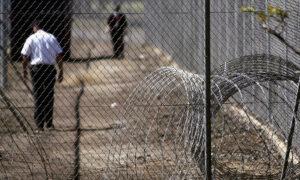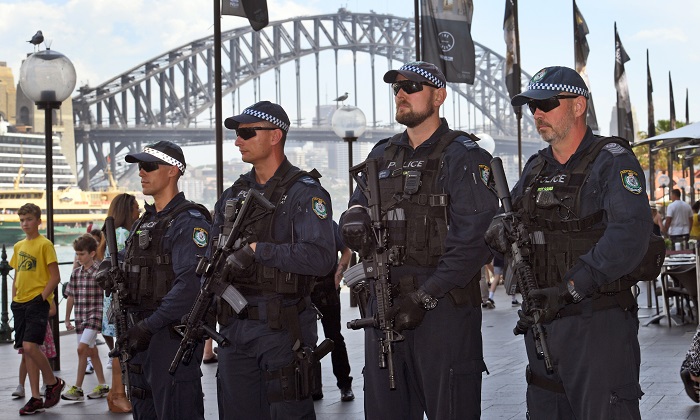The government has succeeded in convincing the High Court to supress details of ankle monitoring of immigration detainees, arguing it could enourage breaches.
Minister for Immigration Andrew Giles has succeeded in preventing the media and the public from obtaining information about the effectiveness of electronic monitoring after convincing the High Court that making it known could encourage former immigration detainees to breach visa conditions, endangering “national security.”
After detainees were released by a High Court ruling outlawing indefinite detention in November last year, the government rushed to pass laws to deal with the prospect of people—many of whom had been convicted of serious offences—being set free in the community.
This included forcing released detainees to wear tracking devices and obey curfews, with a minimum penalty of a year in prison for a new offence of breaching bridging visa conditions.
However, the Department of Home Affairs was found to have been removing the bracelets of people who challenged their legality in court, which resulted in five cases being discontinued after the minister was advised to do so by the Community Protection Board.
One former detainee whose device was taken off, Majid Jamshidi Doukoshkan, went on to allegedly assault and rob a 73-year-old Perth woman, Ninette Simons, in April.
The current case has arisen because a stateless refugee from Eritrea, known by the pseudonym YBFZ, was charged with offences related to failing to observe curfew and recharge his ankle monitor in December and January. These have been dropped, but the case is still proceeding, with YBFZ seeking a declaration that the visa conditions are unconstitutional because they are punitive and breach the separation of powers.
People May Be Encouraged to Commit Crimes, Government Argued
In submissions on April 30, Mr. Giles asked the court to suppress details about how the Australian Border Force and Buddi Ltd conduct electronic monitoring, according to The Guardian.
Part of the evidence included testimony from one witness about “the general accuracy of the smart tag … when using GPS technology to detect its location,” along with details of how often the smart tag records data, including location, and transmits it.
The government claimed the suppression order was necessary because the material would disclose sensitive law enforcement technologies and capabilities, affect national security, and “prejudice ... the proper administration of justice.”
Making it public could result in “persons testing and ascertaining the capabilities and limits of their electronic monitoring devices,” making them more likely to breach their visa conditions because they believed “their activity will remain undetected for a period of time.”
The risk affected not only the former detainees—around 140 of whom were released last year—but also serious sex or violent offenders in Victoria, who are also subject to electronic monitoring.
On Friday, the Court granted the suppression order by consent, meaning the evidence will be available to the judge and the parties, but not the public.
The government says it’s confident that the legality of its visa conditions will be upheld because having created the Community Protection Board to advise on visa conditions would help it show the court that it is “making good decisions based on the advice of experts.”
A spokesperson for the immigration minister said it would be “highly irresponsible” to comment on the case before it was heard by the Court, which could happen as early as August.














 English (US) ·
English (US) ·  Turkish (TR) ·
Turkish (TR) ·